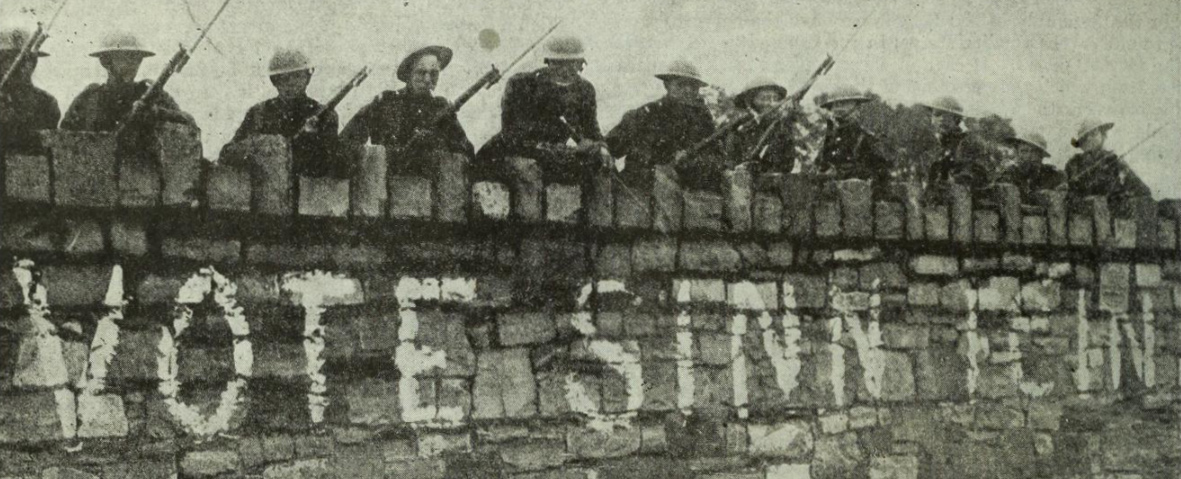Catholic bishops accuse British government of being architects of Irish ‘anarchy’
Maynooth, 20 October 1920 - Ireland’s catholic bishops have issued one of their strongest statements yet on the deteriorating Irish situation.
A meeting of the Irish catholic hierarchy in Maynooth yesterday, passed a resolution that laid the blame for the current disorder in the country at the door of the British government. Ireland has been ‘reduced to a state of anarchy’, the bishops maintain, by ‘terrorism, partiality, and failure to apply the principles which... are the characteristics of government.’
Ministers of the British government are, the bishops allege, the ‘architects’ of the current anarchy and the hierarchy has demanded a full inquiry into the recent atrocities perpetrated by crown forces.
They further denounced the exclusion of Daniel Mannix, the Archbishop of Melbourne, from Ireland, and the continued imprisonment of the Lord Mayor of Cork, Terence MacSwiney, and the 10 other hunger strikers in Cork Gaol.
The statement from Maynooth details the character and range of the atrocities that crown forces have inflicted upon the Irish people in recent months: indiscriminate raids and arrests under the cover of darkness; prisoners being held without trial; the burning of houses, town halls, factories, creameries and crops; the destruction of industries; and the torture and massacre of civilians.
On the question of Ulster, the bishops point up the double standard by which northern unionists must not ‘suffer the contamination of a Dublin parliament, but all Ireland must be coerced for the sake of the north-east, and even Tyrone and Fermanagh must be put under a Belfast government against their wills.’
The statement from Maynooth was signed by all members of the hierarchy, headed by Cardinal Michael Logue, Primate of All-Ireland; William Walsh, the Archbishop of Dublin; John Harty, the Archbishop of Cashel; Daniel Cohalan, Bishop of Cork; Denis Hallinan, the Bishop Limerick; Michael Fogarty, Bishop of Killaloe; and Joseph MacRory, Bishop of Down and Connor. It echoes an earlier warning from the bishops about the risks associated with a policy that relied on oppressive measures.
The bishops’ statement has secured support from large swathes of the Irish nationalist press, but the Irish Times, a voice of southern unionist opinion, has been more critical.
In an editorial today, the Irish Times argues that while the British government had made ‘many mistakes’ of late, ‘retrospective criticism – especially violent criticism – can serve no good purpose at this time. Criticism of the present Irish policy is perfectly legitimate, but, if it is to be useful, it ought to be moderate and constructive. The cabinet is not likely to be influenced by abuse, and, apart from the vague statement that the Irish people are entitled to choose their own form of government, the hierarchy makes no proposals for a reasonable settlement of the Irish question.’
The Belfast Newsletter interprets the bishops’ statement as a defence of Sinn Féin and accordingly refers to them as a ‘rebel hierarchy’.
[Editor's note: This is an article from Century Ireland, a fortnightly online newspaper, written from the perspective of a journalist 100 years ago, based on news reports of the time.]





















